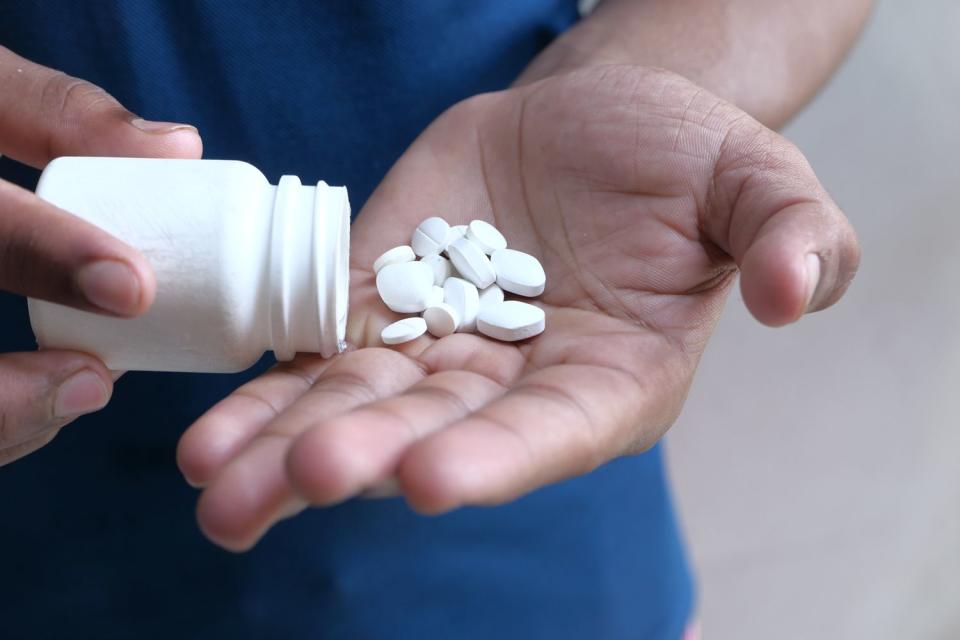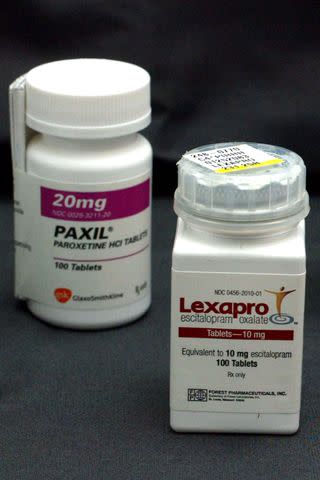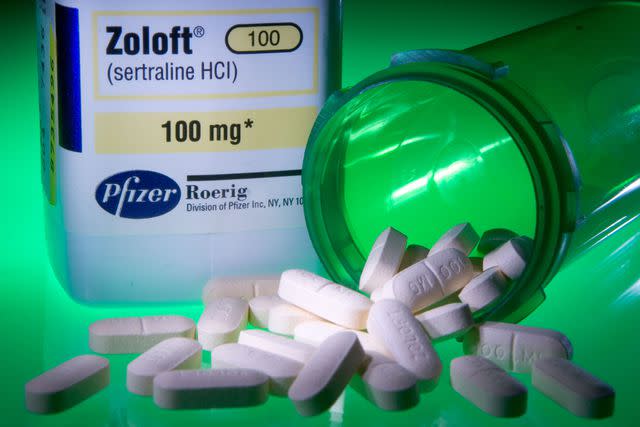These Are the 3 Popular Antidepressants Likely to Cause Weight Gain
A new study compared commonly prescribed antidepressants — such as Wellbutrin, Zoloft and Lexapro — and found which ones are more likely to cause weight gain

Getty
Stock image of medicationCertain antidepressants are more likely to make you gain weight. And in some cases, by as much as 15%.
A new study published in the Annals of Internal Medicine followed nearly 200,000 patients for two years, tracking their antidepressant use and weight. Researchers compared their risk of weight gain with users of sertraline, commonly known as Zoloft.
"Compared with that for sertraline, estimated 6-month weight gain was higher for escitalopram, paroxetine, duloxetine, venlafaxine and citalopram; similar for fluoxetine; and lower for bupropion," the results of the study said. “Escitalopram, paroxetine and duloxetine were associated with 10% to 15% higher risk for gaining at least 5% of baseline weight, whereas bupropion was associated with 15% reduced risk.”
Escitalopram, paroxetine and duloxetine are the generic names for popular medications known as Lexapro, Paxil and Cymbalta, respectively. Additionally, venlafaxine is commonly known as Effexor XR and fluoxetine is known as Prozac while bupropion is usually known as Zyban or Wellbutrin.

Joe Raedle/Getty
Stock image of popular antidepressants Paxil and LexaproNever miss a story — sign up for PEOPLE's free daily newsletter to stay up-to-date on the best of what PEOPLE has to offer, from celebrity news to compelling human interest stories.
“A lot of patients are concerned about gaining excess weight when they’re taking an antidepressant,” Joshua Petimar, assistant professor of population medicine at Harvard Medical School and the Harvard Pilgrim Health Care Institute and the lead author of the study, told The New York Times.
He added that weight gain may cause people to stop taking their antidepressants, which he told the outlet, “can kind of lead to a host of adverse outcomes like increased risk of hospitalization or relapse of symptoms.”
According to the Mayo Clinic, “antidepressants may not cure depression, they can reduce symptoms” of it.
Those symptoms can include "persistent sadness, a depressed mood, diminished interest in previously enjoyable activities and other symptoms that interfere with the ability to function in daily life," according to Verywell Mind, which added that 20% of adults in the U.S. have been diagnosed with depression.
Although most of the participants were either obese or overweight at the start of the study, the Times adds that the study showed “some level of weight gain” among all who took antidepressants.

Jb Reed/Bloomberg via Getty
Stock image of ZoloftRelated: Amanda Bynes Says She 'Gained Over 20 Lbs.' Due to Depression: 'I’m Doing a Lot Better Now'
According to the Mayo Clinic, "weight gain is a possible side effect of nearly all antidepressants. However, each person responds to antidepressants differently. Some people gain weight when taking a certain antidepressant, while others don't."
But if you're seeing an improvement to your mental health, it is recommended by the Clinic to “consider managing your weight by eating healthier and getting more physical activity while enjoying an improved mood due to the medication.”
If you or someone you know needs mental health help, text "STRENGTH" to the Crisis Text Line at 741-741 to be connected to a certified crisis counselor.
For more People news, make sure to sign up for our newsletter!
Read the original article on People.


